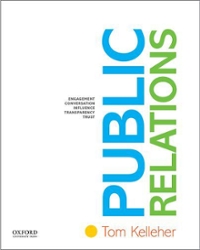Question
1.Suppose that there is a Production Possibility Frontier drawn with beef on the vertical axis and milk on the horizontal axis. The PPF has the
1.Suppose that there is a Production Possibility Frontier drawn with beef on the vertical axis and milk on the horizontal axis. The PPF has the usual concave shape.
A new beef preparing technique is developed that assists with the production of beef, but is of no use to milk production.
How will this shift the PPF?
a. The PPF will not move
b. The PPF has the same horizontal intercept, and shifts outwards at other points
c. The PPF will shift outwards at all points
d. The PPF has the same vertical intercept, and shifts outwards at other points
Next
2.You were planning to host your own birthday party next month at a local restaurant at a total cost of $700, and have already paid a $100 non-refundable deposit towards this.
Unknown to you, your partner has also organised a special romantic date night at the same time.
You can only do one activity. The date night cannot be postponed. The birthday party can be cancelled and you will not need to pay the remaining cost, but you will have lost the deposit.
You decide to weigh up the costs and benefits of having your birthday party to decide whether to go ahead or whether to cancel.
What is the opportunity cost of still having your birthday party?
a. The forgone enjoyment of the date night + $600
b. $700
c. $600
d. The forgone enjoyment of the date night
e. The forgone enjoyment of the date night + $700
3.Suppose that there was an unusually bad harvest of apples this year, and at the same time a shift of consumer preferences away from apples.
What can we say about the new equilibrium in the supply and demand model as a result of these two changes?
Group of answer choices
the quantity traded must decrease
the price must decrease
the price must increase
the quantity traded must increase
4.Using the midpoint method, calculate the price elasticity of supply when an increase from $16 to $18 causes quantity supplied to rise from 2000 to 2600.
5.Nok usually buys her coffee for $5. She decides that if the price went up to $5.50 she would still buy it, but any higher than that she would not.
Based on its marginal cost of production, Nok's local coffee store would be willing to sell the coffee for $3, but they have found in the past that $5 is the profit maximising price.
Nok goes back to her coffee shop after it has reopened after COVID-19 closures, and finds that the price is now $4.50. This price change is due to changed consumer demand from other consumers. The store's costs have not changed, and neither has Nok's demand or willingness to pay.
What is the total surplus generated when Nok buys one cup of coffee at the new price?
6.Assume that the market of carrots is competitive and can be modelled by standard demand and supply curves.
Suppose that a natural disaster destroys crops and causes the supply of carrots to decrease, which of the following would necessarily occur as a direct result?
a.None of the other three answers
b.Producer Surplus must increase
c.Consumer Surplus must increase
d.Deadweight Loss must increase
Step by Step Solution
There are 3 Steps involved in it
Step: 1

Get Instant Access to Expert-Tailored Solutions
See step-by-step solutions with expert insights and AI powered tools for academic success
Step: 2

Step: 3

Ace Your Homework with AI
Get the answers you need in no time with our AI-driven, step-by-step assistance
Get Started


